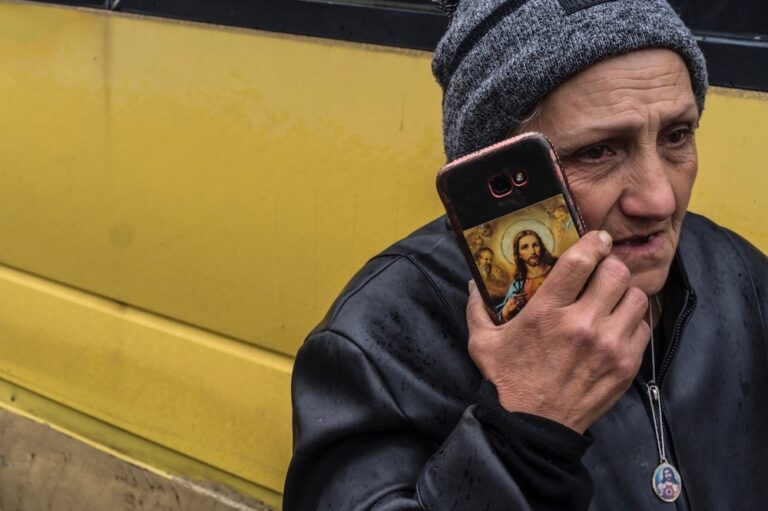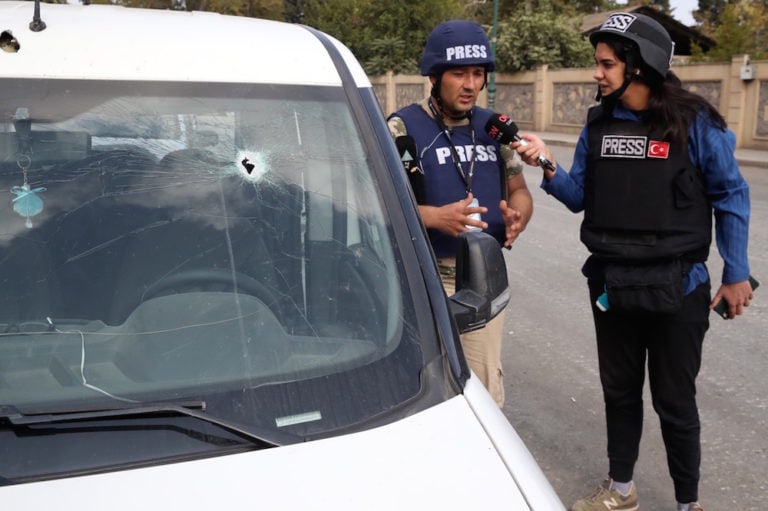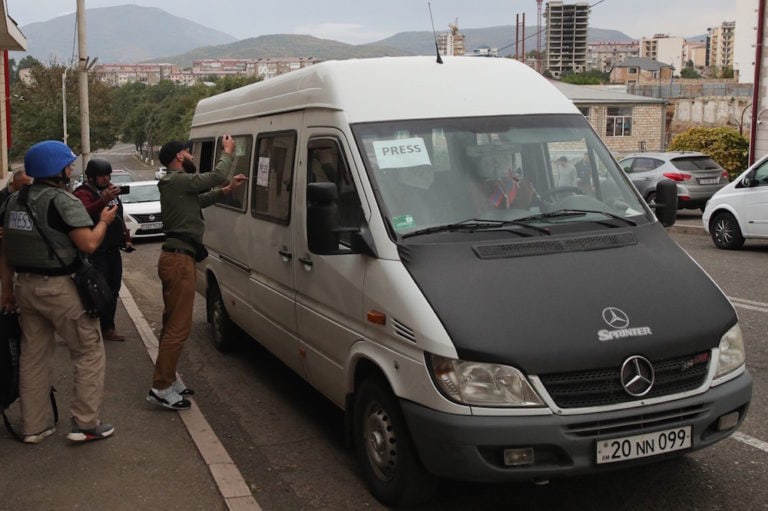Hovhannes Ishkhanyan could be sentenced to up to two years in jail for his short stories about hazing rituals and abuse in the army.
(Index on Censorship/IFEX) – 23 April 2012 – As Armenia prepares to celebrate its status as UNESCO World Book Capital, one young author has found himself in hot water after a penning a literary work which references the conditions faced by the country’s mainly conscript army. Threatened with prosecution under article 263 of the former Soviet republic’s Criminal Code, 24-year-old Hovhannes Ishkhanyan could face up to two years in prison for Demob Day.
Despite having a print run of just 300, of which only 120 copies have sold, the Armenian military maintains that the short-story collection is insulting to itself and also to the Armenian Orthodox Church and the mothers of soldiers.
Ishkhanyan’s supporters allege that the army has been embarrassed in the last few years by stories of harassment, hazing and non-combat deaths. Activists accuse the military of failing to properly investigate abuse, and portraying murders as suicides.
Of the 16 fictional stories in the “The Day of Discharge” three examine hazing rituals, and abuse in the army.
The issue is particularly sensitive in Armenia, still effectively in a state of war with neighbouring Azerbaijan. Only 32 of 228 conscripts who have died between 2007 and 2011 were killed by enemy fire according to official statistics quoted by the local Armenian media, and in recent years videos uploaded to YouTube showing the abuse of conscripts have angered the public.
In response to criticism in October 2011, the Armenian Defence Minister, Seyran Ohanyan announced that he “considers the non-stop deliberate manipulations of army issues by certain groups to be unacceptable. […] From now on, the Defense Ministry will be most strict with those defaming our army.” Writers and human rights activists believe Ishkhanyan’s troubles mark an attempt to close down public debate on the issue.
Two local bookshops have pulled the title from their shelves although one other continues to sell it and on 27 February Ishkhanyan was nonetheless called in for questioning. “I did not make a stir thinking they would not call me and everything would smooth down but they did not and transferred the case to the Central Department of Yerevan police. I was called there and asked the same questions,” the author told online publication Armenia Now.
“First they raised the question of the army then they understood they couldn’t subject me to any liability and now they say that my works contain pornographic scenes and they have applied to the Ministry of Culture,” he explained, adding that the only article a criminal case can be brought is Article 263 of the RA Criminal Code dealing with pornographic materials and which carries with it the possibility of two months to a maximum of two years imprisonment.
Ishkhanyan was questioned for a second time on 24 March; the book’s publisher was interrogated on 4 April.
“[W]e don’t see any legal grounds for prosecution. This can be assessed by us as censorship later, but I cannot make comments today since we have only just received an application from Hovhannes Ishkhanyan and the case is in progress,” Armenia’s Human Rights Ombudsperson Karen Andreasyan told the Aravot newspaper.
Writers in the Armenian Diaspora have come to Ishkhanyan’s defence, with two, Nancy Agabian and Nancy Krikorian launching a petition in Ishkhanyan’s defence.
“Literature is one means by which an open society examines, discusses and debates the problems it faces,” the prominent authors wrote. “A celebration of the five hundred year anniversary of books in Armenia rings hollow at this time when even one book, dealing with a timely and crucial issue of Armenian society, does not have a chance of being read.”
Speaking to Index, the author’s father, established investigative journalist Vahan Ishkhanyan, noted the more personal repercussions of the furor:
Because the affair is still open Hovhannes and his relatives are under permanent stress. During the Soviet era many writers were under pressure in Armenia, but this is the first time in 20 years of independence that they are trying to file a case for a work of fiction.
By Onnik Krikorian, a British journalist and photojournalist based in Armenia and regional editor for the Caucasus at Global Voices Online. His work has appeared in the Los Angeles Times, New Internationalist, Scotsman and the Institute for War & Peace Reporting, among others, and he regularly fixes for Al Jazeera English, BBC and the Wall Street Journal. He tweets at @onewmphoto.


